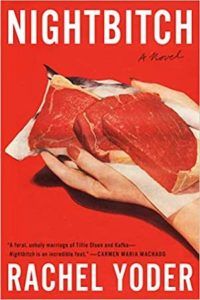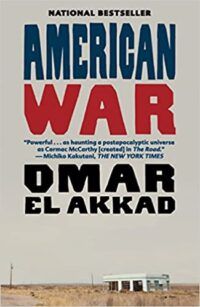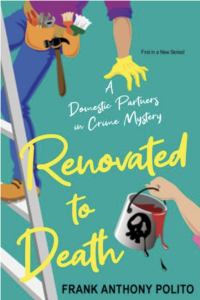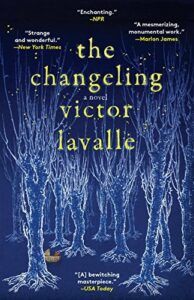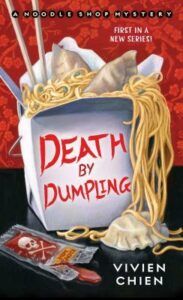Before delving too deep into the branches of sub-genres, it helps to think about what exactly genre means. In the literary world, “genre” is a prose style where the reader has defined expectations. Mystery, Thriller, Romance, Science Fiction, Fantasy, and Historical Fiction are some of the major genres of the novel. Opening pages with a meet cute = Romance. First chapter features a dead body = Mystery. An eager reader of a Romance novel would probably not appreciate reading about a corpse, unless the meet-cute happened in a morgue. (Romantic murder mystery, anyone?) So what makes a sub-genre different than say, a trend or trope? It’s a fuzzy line, but I’d say high reader demand (AKA popularity) for certain elements and the ability to characterize the book on the shelf leads leads to a new sub-genre. If you want to dig deeper, check out writer Kaye Dacus’s blog for the trope/sub-genre distinction when it comes to romance. With that in mind, here’s a sample of ten new book genres and sub-genres that you can add to your TBR.
Cli-Fi
Umbrella genre: Science Fiction Essential elements: Postpartum protagonist + the creeps The gist: Postpartum Horror usually straddles the line between horror and thriller with novels about the bloody, sleep-deprived dark side of a body that has just given birth. Examples: The Push by Ashley Audrain, Nightbitch by Rachel Yoder Essential elements: Disenchantment with motherhood + questionable choices The gist: Maternal ambivalence is having a moment in literary fiction. While protagonists shirking family responsibility have traditionally been fathers, a raft of recent books explore mothers who feel suffocated and unfulfilled by their families. In this genre, kids are abandoned for days or decades while Mom discovers herself. Examples: I Love You but I’ve Chosen Darkness by Claire Vaye Waytkins, Burnt Sugar by Avni Doshi Essential elements: Climate science + burning world problems The gist: The shorthand for “climate fiction,” first coined by Daniel Bloom, Cli-Fi is the disturbingly relevant vein of science fiction that incorporates real climate science into short stories and novels. Global warming, melting ice caps, unbreathable air, Cli-Fi is sometimes set in a dystopian future and sometimes in our burning present. Examples: Weather by Jenny Offil, American War by Omar El-Akkad
Hopepunk
Umbrella genre: Speculative Fiction Essential elements: Required reading + bookworm sleuths The gist: Mystery novels are always puzzle boxes in a way, as readers search the plot for clues. Meta mysteries up the ante by offering a story within the story that the sleuth must search for clues. Very, meta, very bookish, absolutely delightful. Examples: The Magpie Murders by Antony Horowitz; The Eighth Detective by Alex Pavesi Essential elements: Queer sleuths + cozy mystery fun The gist: Quozies are a new addition to the cozy genre, for readers who prefer their murder with a hot cup of tea. Quozies have queer protagonists and all the cozy elements: amateur sleuth, tight knit community, and (relatively) bloodless murder. Examples: Renovated to Death (Domestic Partners in Crime Mysteries) by Frank Anthony Polito Essential elements: Optimism + revolutionary tendencies The gist: Coined as the opposite of grimdark, hopepunk is about collective optimism in the face of adversity. Increasing popular as readers look to escape the grimmer parts of the 2020s, hopepunk revolves around the idea that the good is worth fighting for. While technically any Umbrella genre can have a hopepunk twist, the name comes from the spec fic world, where reality is somehow different than our own. Examples: N.K Jemison’s Broken Earth Trilogy
“No Plot, Just Vibes”
Umbrella Genre: Any Essential elements: Rural isolation + foreboding folklore The gist: If the protagonist is in a spooky forest about to be eaten by Baba Yaga, it could be a folk horror novel. In this sub-genre, the rural setting is always isolating, never idyllic. The lore about monsters has been passed down through generations. Examples: The Changeling by Victor Lavalle, Water Ghosts by Shawna Yang Ryan Essential elements: Black hat cowboys + the creeps The gist: A younger sibling of Southern Gothic, the Western Gothic sub-genre combines boots, spurs, and open skies with chilling violence. Sounds like a good time! Examples: The Passage by Justin Cronin, Pretty Deadly by Kelly Sue Deconnick and Emma Rios Essential elements: Mouthwatering food + sizzling romance The gist: The new sub-genre Foodie Romance is ready to whet your appetite for delectable meals with a side of happily ever after. Featuring cooks, restaurants, family kitchens and vivid food porn, these novels feature zesty romantic pairings. Examples: Death By Dumpling by Vivien Chien, Recipe For Persuasion by Sonali Dev Essential Elements: Low stakes + vivid vibes The gist: Maybe you’re not in the mood for character arcs, stakes, and obstacles, but you want to get lost in a novel’s worth of atmosphere or mood. That’s where the “no plot, just vibes” genre comes in. Technically, most things in this genre do have some kind of plot, but that’s not what we’re here for. Examples: My Year of Rest and Relaxation by Ottessa Moshfegh Want to give any of these new sub-genres a spin? Check out Book Riot’s Tailored Book Recommendations, where smart, bookish people can help you to find completely new book genres for your reading pile!
